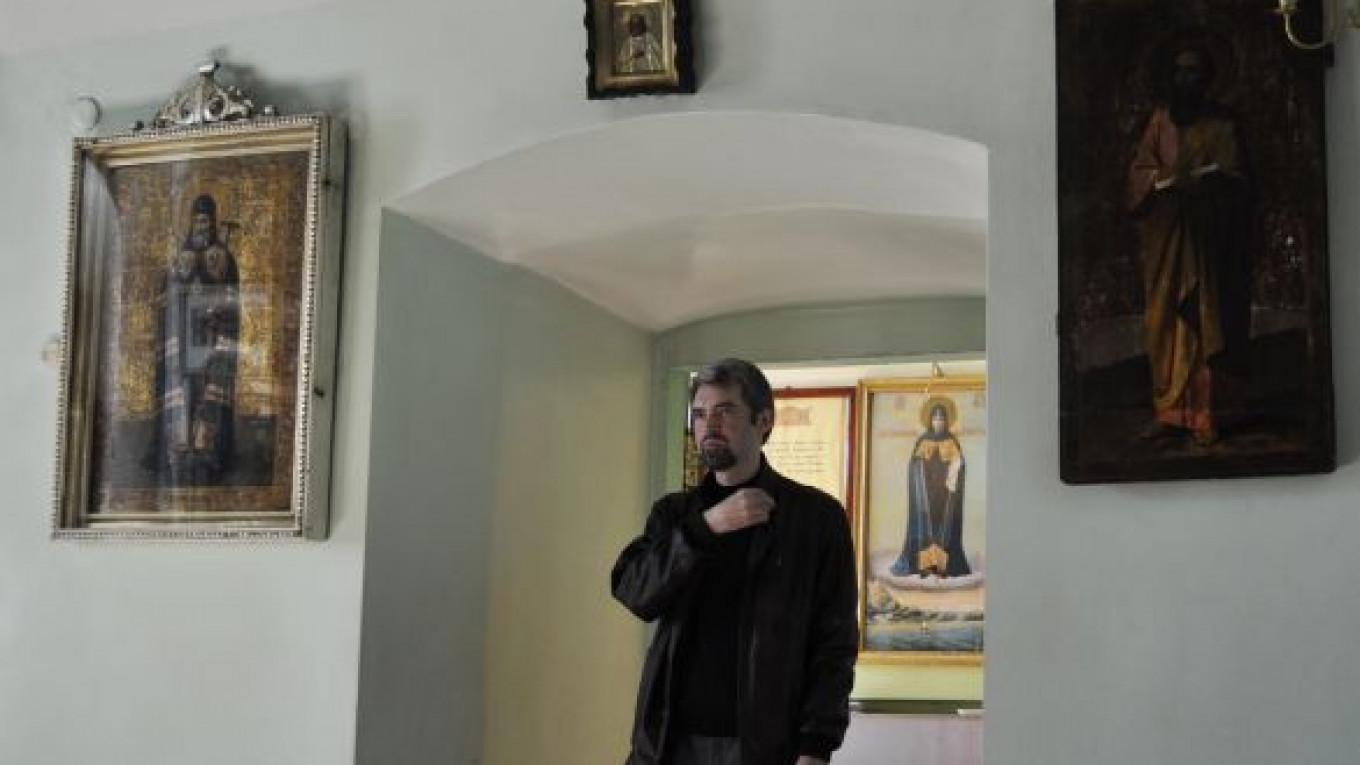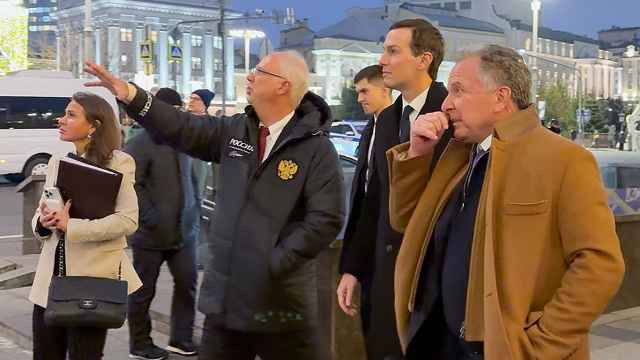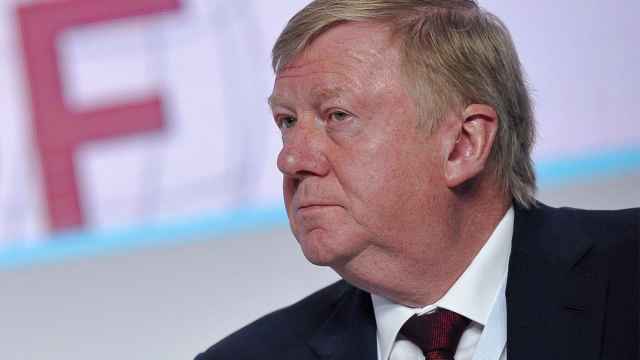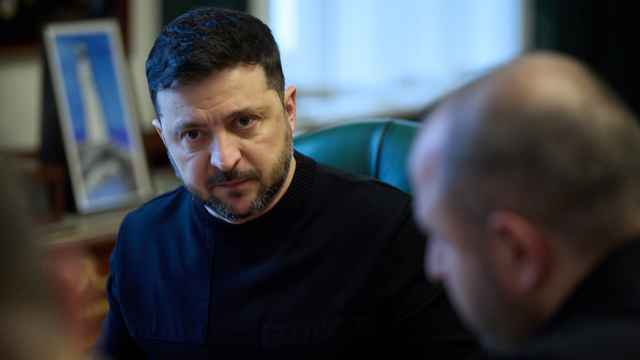Sergei Baranov keeps his clerical robes hanging neatly in his closet, but he believes he will never again wear them inside a Russian Orthodox church.
Baranov, who had led a quiet life as a deacon in the small city of Tambov, became an Internet celebrity last month when he asked to be defrocked in an open letter to the Moscow Patriarchate, saying he was outraged by the church’s stance against three members of the punk band Pussy Riot.
The feminist rockers were sentenced to two years in prison after singing a “punk prayer” against President Vladimir Putin in Moscow’s main cathedral, a stunt that divided Russians.
Even some devout believers who did not approve of the women’s high kicks in the cathedral’s solea in February spoke out against the trial and what appeared to be the church’s heavy-handed involvement. Baranov gave them a strong public voice — and gave up his calling in order to back up his beliefs.
Baranov said in an interview that he supports the band’s stunt and does not regret his resignation.
“Everyone prays as they can,” Baranov said of the Pussy Riot members. “And with their act, they exposed the ills and blisters of society. We should have done that a long time ago.”
The Pussy Riot trial had given courage to Baranov, who said that he had long been critical of the church’s stance but that the women’s actions had shown him that the church is ripe, if not overdue, for serious reform.
Baranov was far away from the discontent still simmering in Moscow after the trial. But he managed to further ripple the waters with the help of Facebook, as his letter accumulated over 4,000 likes and almost 2,000 reposts within several days.
The Internet has mobilized countless opposition voices like Baranov’s throughout Russia, this time helping a little-known cleric draw attention to what he sees as the ills of the Orthodox Church, its conservatism and its open support for Putin.
The Pussy Riot case demonstrated that the church is more attentive to the government than to the needs of its believers, and it is time for a change in the clergy hierarchy, he argued.
Anger with the church began to boil at the time of Putin’s re-election to a third presidential term in March, when Patriarch Kirill strongly backed his bid, calling the 12-year Putin rule a “miracle of God.” Putin, who was facing massive street protests in Moscow against his leadership, was eager to have a helping hand from the church in swaying more devout voters in his direction.
“When Hitler and Stalin created their powerful totalitarian regimes, they made use of powerful ideologies,” said Father Gleb Yakunin, a former Russian Orthodox Church priest who was defrocked in the 1990s. “Putin seems to be a good administrator, but [he’s] a weak ideologist, so he decided to use something that already exists.”
After Baranov posted his open letter online, the Tambov regional clergy issued a press release on their website in which they accused him of “rakish behavior” and alcohol abuse, saying he was using the current political climate and the trial of Pussy Riot as an excuse to leave the church.
The former deacon was subsequently defrocked, although an official defrocking requires confirmation by the patriarch, who is likely to sign the mandate within a few weeks. Officials at the Moscow Patriarchate wouldn’t comment on Baranov’s case.
According to Baranov, local politicians were also rattled by his letter, and he said he had been approached by a deputy governor and security officials, who asked him about the political motives behind his statements.
On a sunny Tuesday morning in Tambov, a city about 400 kilometers south of Moscow best-known for its delicious potatoes, locals were far from providing support for the defrocked deacon. Several members of the Pokrovsky Cathedral, the church where Baranov served, said they believe that a priest should respect his religious order, and that respect for the church should come before freedom of speech.
“It wasn’t correct for him to write in support [of the Pussy Riot women],” said Larisa Krasnova, a retired military sergeant who had been visiting the church with her grandson. “I approve of the fact that they were tried because it’s blasphemy and because it’s unforgivable.”
Baranov said he doesn’t expect the support of local churchgoers. He is afraid, however, that the church is preparing to further purge him, ensuring that he will no longer be able to take part in the services that he fell in love with when he was 13 years old.
“When the media furor dies down, they will simply excommunicate me from the church,” Baranov said. “Once this happens, I won’t have the right to enter a church. I will lose the right to communion.”
The church has not yet requested Baranov’s excommunication, although it has not denied that such an action may take place.
Excommunication is a quite rare punishment in the Orthodox Church. Most famously, novelist Leo Tolstoy was excommunicated, and others who are unrepentant, like Yakunin, have suffered a similar fate.
Related articles:
A Message from The Moscow Times:
Dear readers,
We are facing unprecedented challenges. Russia's Prosecutor General's Office has designated The Moscow Times as an "undesirable" organization, criminalizing our work and putting our staff at risk of prosecution. This follows our earlier unjust labeling as a "foreign agent."
These actions are direct attempts to silence independent journalism in Russia. The authorities claim our work "discredits the decisions of the Russian leadership." We see things differently: we strive to provide accurate, unbiased reporting on Russia.
We, the journalists of The Moscow Times, refuse to be silenced. But to continue our work, we need your help.
Your support, no matter how small, makes a world of difference. If you can, please support us monthly starting from just $2. It's quick to set up, and every contribution makes a significant impact.
By supporting The Moscow Times, you're defending open, independent journalism in the face of repression. Thank you for standing with us.
Remind me later.






